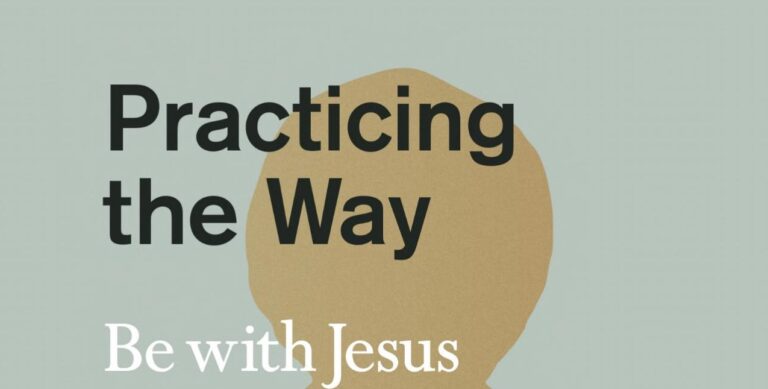Shame dominates our public and private spaces. It drives people to signal their virtue because they fear being publicly shamed if they don’t. Shame tortures our innermost thoughts as we repeatedly ask ourselves, “What will other people think of me?”
If our shame was personified and it thought about Good Friday or Easter, it would generally manifest itself as guilt that we don’t feel bad enough about our sin, or don’t feel good enough about God’s grace. The goodness of Good Friday feels detached and abstract. The triumph of Easter morning should be celebrated with a bang instead of our tired whimper.
But the shame of social guilt in our psychologized world is not the big issue. Instead, the shame of guilt before God is what we must deal with. Adam led the way in this when he and his wife hid in shame from God because of their sin. Instead of going to God and asking for help, they fled from God and tried to cover their exposure with whatever they could get their hands on.
So our social shame is merely a symptom of our shame before God. We are guilty. As Isaiah cried out, “I am a man of unclean lips and I live among a people of unclean lips, for my eyes have seen the king, the LORD of hosts”.
Our anxieties and depression find their source in this objective foundational guilt before God. The shame is the advance pain of judgement. It is the dread of the doom to come. So, any attempt to banish shame without some kind of atonement is phony. Yet a society that wants to feel good about itself eradicates any mention of shame, while we all carry the load of guilt untouched and un-atoned for.
When the struggling Jewish Christians of the first century A.D. felt the social stigma of following Jesus as their Messiah, they needed to be reminded of what Christ had done on that first Good Friday. He went to the cross, according to Hebrews 12:2, “despising the shame”.
Whose shame was he despising?
In one sense it was his own, or at least how he was being externally perceived and portrayed. He was being treated as if he was the rebellious son of Deuteronomy 21:23, “cursed is everyone who hangs on a tree”. He was mocked by the soldiers and derided by the crowds. They heaped all their social shame upon him. In that sense, Jesus was “despising the shame”.
The taunts and lies and caricatures did not stop him. He refused to be swayed from his course. He refused to give in to the social shame heaped upon him. In this way Jesus Christ was a portrait of courage. He had no tolerance for the shame imposed upon him. He did not accept it as true, but he endured despite the shame and despising it.
Jesus despised the shame of others too. Jesus associated himself with the shame before God that sinners bore truly and rightly. Jesus was well within his rights to disassociate himself from guilty, shameful sinners. He didn’t need to mess with them and be dragged down into the gutter with them. But he chose guilt by association. He took the shame of others upon himself because he took their legal guilt upon himself objectively.
Only God could see that guilt laid on Jesus. Only Jesus could bear the shameful curse against sinners. In fact, Jesus was “not ashamed to call them brothers” because he had been “made perfect through suffering” (Hebrews 12:2). Jesus suffered in the place of the guilty and the ashamed.
Even the terror of the judgement of God against the guilt of sin did not make Jesus shrink back. Jesus knew the calculus. “The wages of sin is death” (Romans 6:23). If He was to be associated with the shame and guilt of his people, he would need to pay the debt, the debt of death. But Jesus stepped up and he didn’t balk at paying the tab. He despised the shameful bill, pulled out his wallet and paid with the promissory note of his own life.
When Jesus rose from the dead on the first Easter morning, the news was good and those who believe in Jesus enjoy “the freedom of the glory of the children of God” (Romans 8:21). The security in Christ is so solid, and the Father’s love so enduring that shame is cast away and in its place is the powerful motive of the apostle Paul:
For I am not ashamed of the gospel, for it is the power of God for salvation to everyone who believes, to the Jew first and also to the Greek. For in it the righteousness of God is revealed from faith for faith as it is written, “The righteous shall live by faith.” (Romans 1:16-17)
Is your anxiety or depression or fear of social shame blinding you to what Jesus has done? He despised the shame for sinners like you. Then you will have the courage to keep “a good conscience, so that, when you are slandered, those who revile your good behavior in Christ may be put to shame.”
This Easter, see how Jesus has dealt with sin and shame. You don’t have to accept social shame as true. In Christ, you don’t need to believe the lie that you aren’t acceptable enough. Because of the Son, the Father smiles upon you. Find your security in Him, and you will look upon him with an unashamed, “unveiled face” (2 Cor 3:18).
























